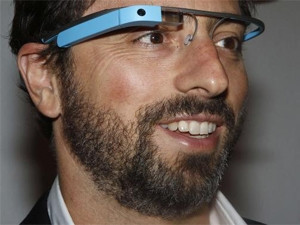
Following an announcement that drew mixed reactions from tech consumers, yet came as both welcome and expected news to some industry watchers, this week heralded the end of Google's experimental Google Glass Explorer programme.
The Internet giant announced on Thursday that it would discontinue Google Glass, which was launched in April 2013 as an "open beta" project, as of 19 January.
World Wide Worx MD Arthur Goldstuck previously predicted the demise of the connected head gear, which he called intrusive and offensive. He says it is clearly the end of the device in the format that allowed for the rise of the "glasshole", adding it will "no doubt re-emerge in a more palatable format".
Goldstuck says Google's announcement in effect declares that Glass failed to go mainstream. And he is in no way surprised. Last year, the local tech analyst said Google Glass was "possibly the single most intrusive clothing accessory of modern times, almost on a par with Mohawk hairstyles, facial tattoos and 'Ask Me How I Lost Weight' badges".
Africa Analysis MD Dobek Pater says he does not envisage Google Glass, in its current form, becoming a mainstream device anywhere in the world.
Although Google did not give much away in its social media post, it did indicate there would be future iterations of the wearable tech. "In the meantime, we're continuing to build for the future, and you'll start to see future versions of Glass when they're ready. (For now, no peeking.)"
ICT expert Adrian Schofield says nothing less than a major rethink of Google Glass is likely to see the device succeed in a market Google says has seen interest "explode" - wearables. Wearables were a hot item during this month's Consumer Electronics Show in Las Vegas.
Wearable flop
Locally, analysts paint a different picture. In truth, says Goldstuck, there is no wearables market in this country. "There is, however, a strong and growing market in fitness and activity monitoring devices. It's an expensive mistake many are making to conflate the two."
The popularity of Google Glass in SA is not measurable. Goldstuck points out that a few of the gadgets were bought in the US and brought to the local market by resellers, at "horrendous" prices. Although those were sold quickly, this did not represent real interest, he notes.
In August last year, top local online merchant Takealot introduced a Google Glass offering, with a price tag of R27 000.
Pater doubts whether the wearables market is booming and says it may only show real growth a few - or even several - years from now.
Schofield notes not every innovation takes off. In fact, he says, 90% of them probably fail. "Google Glass is a pretty visible one, but Google is likely to learn the lesson fast and come out with something completely different."
Pater agrees, saying Google Glass may not return to the market in the same format, but the idea will probably be improved on and eventually refloated - but it could be a few years from now.
"As a fashion accessory and a consumable item, Google Glass had little use for most consumers, especially at the high price. However, it does have quite a few practical applications for the hearing impaired, any profession or situation where both your hands are busy (like a surgeon performing an operation). Its business application is probably far greater than its consumer application," notes Pater.
Share